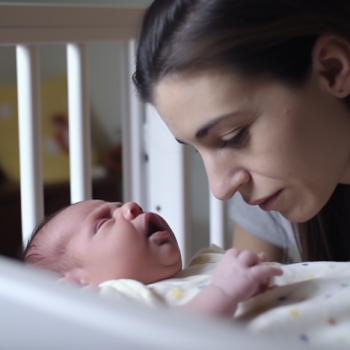Are you a breastfeeding mother wondering if you can sleep train your baby? The answer is yes, you can! Sleep training and breastfeeding can go hand in hand if done correctly. It's important to establish a feeding schedule and ensure your baby is getting enough milk during the day before starting sleep training. Gradual methods like the pick-up-put-down technique or the Ferber method can work well for breastfeeding moms. It may take longer to see results, but with consistency and patience, your baby will learn to self-soothe and sleep through the night while continuing to receive the benefits of breastfeeding. Remember, every baby is different, and it's important to listen to your instincts and consult with your healthcare provider before starting any sleep training method.
Tag: sleep training methods
The Safety of Infant Sleep Training: What Experts Say
When it comes to sleep training your infant, safety is always a top priority. Many parents may be hesitant to try sleep training due to concerns over their baby's well-being. However, studies have shown that when done properly, sleep training is safe for infants. It is important to work with a pediatrician and a certified sleep consultant to create a personalized sleep plan for your baby that takes into account their unique needs and developmental stage. Additionally, it is important to approach sleep training with empathy and patience, as it can be a difficult process for both the infant and the parents. With proper guidance and a well-designed sleep plan, sleep training can be a safe and effective way to improve your infant's sleep patterns and support their overall health and development.
When to Begin Sleep Training for Your Baby: Expert Tips and Guidelines
Are you a new parent wondering when to start sleep training your little one? The answer may vary depending on your baby's age and development, but most experts recommend starting between 4 and 6 months. At this age, babies have established a regular sleep pattern and are able to self-soothe. By implementing a consistent bedtime routine and gradually teaching your baby to fall asleep on their own, you can help them develop healthy sleep habits that will benefit them for years to come. Don't wait too long to start sleep training, as the longer you wait, the harder it may be for your baby to adjust to a new routine.
A Beginner’s Guide to Sleep Training for Infants: Benefits and Techniques Explained
Sleep training for infants is a process of teaching babies how to sleep independently through the night. It involves gradually reducing the presence and intervention of parents during bedtime routines. Sleep training may include methods such as the Ferber method, the cry it out method, or the chair method, and involves establishing a consistent sleep schedule and routine. While sleep training can be controversial, it can be a helpful solution for parents who are struggling with sleep deprivation and are looking for a way to help their baby get the rest they need. It is important to note that sleep training should only be done when the baby is developmentally ready and should always be done under the guidance of a pediatrician.




